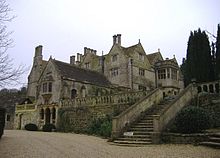
A hymn is a type of song, and partially synonymous with devotional song, specifically written for the purpose of adoration or prayer, and typically addressed to a deity or deities, or to a prominent figure or personification. The word hymn derives from Greek ὕμνος (hymnos), which means "a song of praise". A writer of hymns is known as a hymnist. The singing or composition of hymns is called hymnody. Collections of hymns are known as hymnals or hymn books. Hymns may or may not include instrumental accompaniment.

A hymnal or hymnary is a collection of hymns, usually in the form of a book, called a hymnbook. They are used in congregational singing. A hymnal may contain only hymn texts ; written melodies are extra, and more recently harmony parts have also been provided.

"Love Divine, All Loves Excelling" is a Christian hymn by Charles Wesley on Christian perfection. Judging by general repute, it is among Wesley's finest: "justly famous and beloved, better known than almost any other hymn of Charles Wesley." Judging by its distribution, it is also among his most successful: by the end of the 19th century, it is found in 15 of the 17 hymn books consulted by the authors of Lyric Studies. On a larger scale, it is found almost universally in general collections of the past century, including not only Methodist and Anglican hymn books and commercial and ecumenical collections, but also hymnals published by Reformed, Presbyterian, Baptist, Brethren, Seventh-day Adventist, Lutheran, Congregationalist, Pentecostal, and Roman Catholic traditions, among others including the Churches of Christ. Specifically, it appears in 1,328 of the North American hymnals indexed by the online Dictionary of North American Hymnology, comparable to Newton's "Amazing Grace" (1,036), Wesley's "O for a Thousand Tongues" (1,249), and Watts' "When I Survey the Wondrous Cross" (1,483), though still well short of Toplady's "Rock of Ages" (2,139) or Wesley's own "Jesu, Lover of my Soul" (2,164).

"For All the Saints" was written as a processional hymn by William Walsham How, who was ultimately the Anglican Bishop of Wakefield. The hymn was first printed in Hymns for Saints' Days, and Other Hymns, by Earl Nelson, 1864.

"Christ the Lord Is Risen Today" is a Christian hymn associated with Easter. Most of the stanzas were written by Charles Wesley, and the hymn appeared under the title "Hymn for Easter Day" in Hymns and Sacred Poems by Charles and John Wesley in 1739. The hymn eventually became well known for the "Alleluia" sung as a melisma after each line, which was added by an unknown author, probably to fit the commonly used hymn tune, "Easter Hymn". It remains a traditional processional hymn on Easter Sunday.
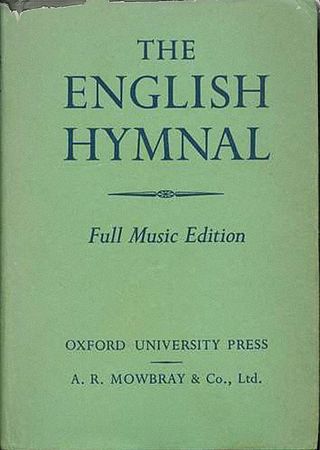
The English Hymnal is a hymn book which was published in 1906 for the Church of England by Oxford University Press. It was edited by the clergyman and writer Percy Dearmer and the composer and music historian Ralph Vaughan Williams, and was a significant publication in the history of Anglican church music.

"We Gather Together" is a Christian hymn of Dutch origin written in 1597 by Adrianus Valerius as "Wilt heden nu treden" to celebrate the Dutch victory over Spanish forces in the Battle of Turnhout. It was originally set to a Dutch folk tune. In the United States, it is popularly associated with Thanksgiving Day and is often sung at family meals and at religious services on that day.
Hymns are an important part of the history and worship of the Church of Jesus Christ of Latter-day Saints.

Hymns of the Church of Jesus Christ of Latter-day Saints is the official hymnal of the Church of Jesus Christ of Latter-day Saints . Published in English in 1985, and later in many other languages, it is used throughout the LDS Church. This article refers to the English version. The book was published on the 150th anniversary of the publication of the first LDS hymnbook, compiled by Emma Smith in 1835. Previous hymnbooks used by the church include The Manchester Hymnal (1840), The Psalmody (1889), Songs of Zion (1908), Hymns (1927), and Hymns (1948).

Hymns Ancient and Modern is a hymnal in common use within the Church of England, a result of the efforts of the Oxford Movement. The hymnal was first published in 1861. The organization publishing it has now been formed into a charitable trust, Hymns Ancient and Modern Ltd, and as of 2022 it publishes a wide range of hymnals as well as other theological and religious books and magazines, under imprints such as the Canterbury Press and SCM Press.
"For the Beauty of the Earth" is a Christian hymn by Folliott S. Pierpoint (1835-1917).
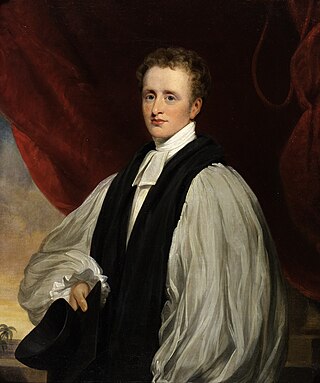
"Holy, Holy, Holy! Lord God Almighty!" is a Christian hymn written by the Anglican bishop Reginald Heber (1783–1826).
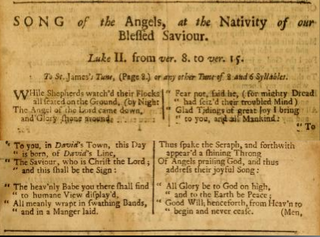
"While shepherds watched their flocks" is a traditional Christmas carol describing the Annunciation to the Shepherds, with words attributed to Irish hymnist, lyricist and England's Poet Laureate Nahum Tate. It is listed as number 16898 in the Roud Folk Song Index.
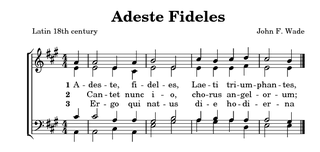
A hymn tune is the melody of a musical composition to which a hymn text is sung. Musically speaking, a hymn is generally understood to have four-part harmony, a fast harmonic rhythm, with or without refrain or chorus.

"Lord of all Hopefulness" is a Christian hymn written by English writer Jan Struther, which was published in the enlarged edition of Songs of Praise in 1931. The hymn is used in liturgy, at weddings and at the beginning of funeral services, and is one of the most popular hymns in the United Kingdom.

"All My Hope on God is Founded" is a well-known hymn, originally German, which was translated into English in 1899 and which established itself in the latter part of the twentieth century.

"Praise, my soul, the King of heaven" is a Christian hymn. Its text, which draws from Psalm 103, was written by Anglican divine Henry Francis Lyte. First published in 1834, it endures in modern hymnals to a setting written by John Goss in 1868, and remains one of the most popular hymns in English-speaking denominations.
Robert Hall Baynes was an Anglican priest, a hymnodist and a hymn writer. He was editor of the Lyra Anglicana, which was among the most influential hymnals of the Oxford Movement in the 1860s and 1870s, having a relatively broad selection of Anglican authors.

"Ye Choirs of New Jerusalem" or "Sing, Choirs of New Jerusalem" is an English Easter hymn by Robert Campbell. It is a 19th-century translation of the medieval Chorus novae Ierusalem, attributed to Fulbert of Chartres. The text's primary focus is the Resurrection of Jesus, taking the theme of Jesus as triumphant victor over death and deliverer of the prisoners from Hell.


